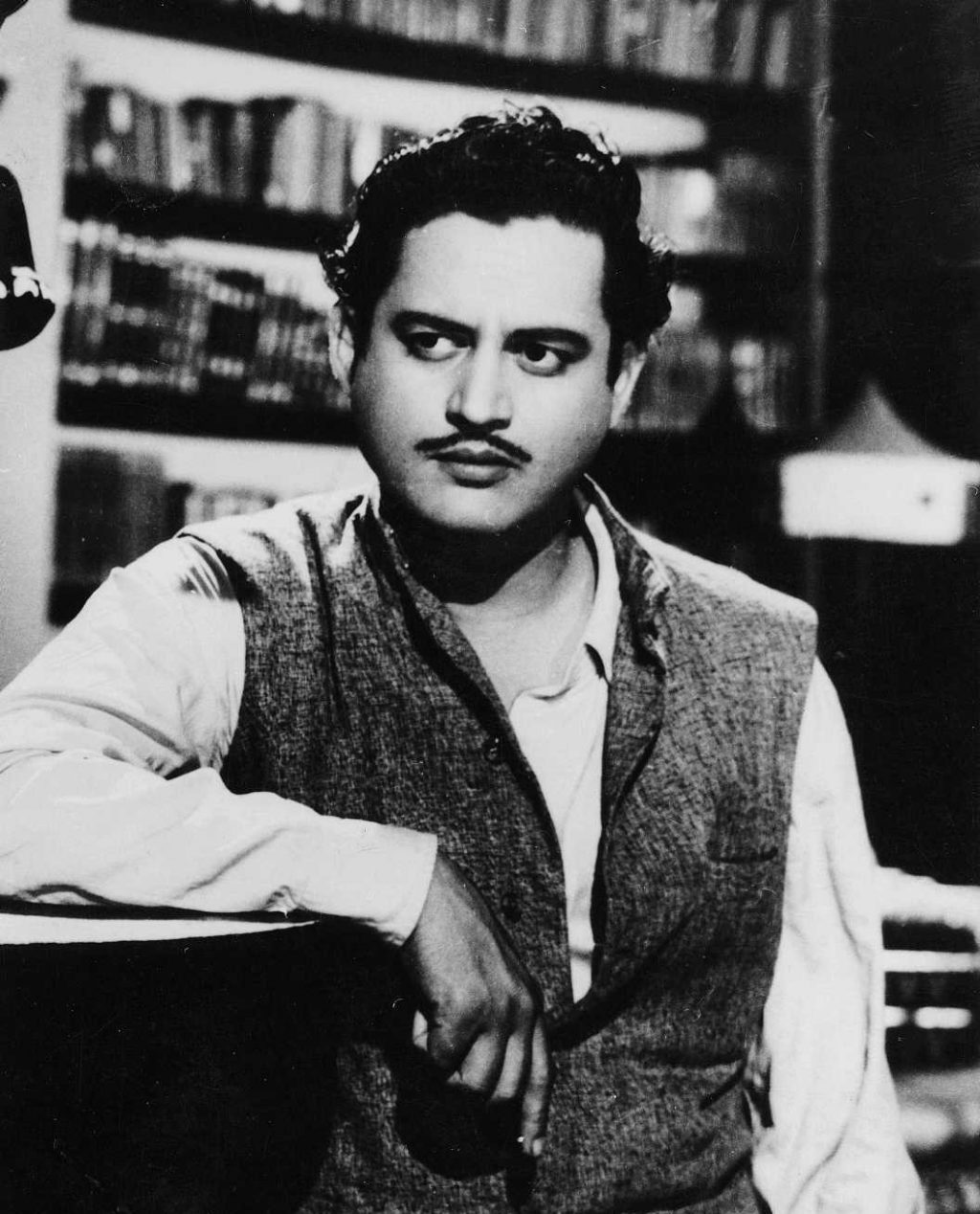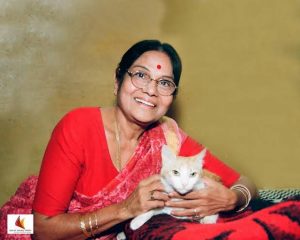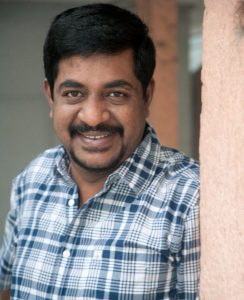
Vasanth Kumar Shivashankar Padukone (9 July 1925 – 10 October 1964), better known as Guru Dutt, was an Indian film director, producer, actor, choreographer, and writer. He is regarded as one of the greatest filmmakers of Indian cinema.
Vasanth Kumar Shivashankar Padukone was born on 9 July 1925, in Padukone in the present-day state of Karnataka in India into a Chitrapur Saraswat Brahmin family. His name was changed to Gurudatta Padukone following a childhood accident, the belief being that it was an auspicious choice. His father, Shivashanker Rao Padukone, was a headmaster and a banker; his mother Vasanthi, was a teacher and writer. Both parents were originally settled in Karwar but relocated.
He had one younger sister—Lalita Lajmi, who is an Indian painter—and 3 younger brothers, Atma Ram (a director), Devi (a producer), and Vijay. Likewise, his niece Kalpana Lajmi was also a well-known Indian film director, producer, and screenwriter; and his second cousin Shyam Benegal is a director and screenwriter.
He studied at Uday Shankar’s School of Dancing and Choreography in Almora in 1942 but was taken out in 1944 after getting involved with the company’s leading lady. Dutt briefly returned to his parents in Bombay before his uncle found him a job under a 3-year contract with the Prabhat Film Company in Pune later that year.
In 1945, Dutt made his acting debut in Vishram Bedekar’s Lakhrani (1945), as Lachman, a minor role. In 1946, he worked as an assistant director and choreographed dances for P. L. Santoshi’s film, Hum Ek Hain, in which Dev Anand made his acting debut.
In 1960, Dutt’s team released Chaudhvin Ka Chand, directed by M. Sadiq and starring Dutt alongside Waheeda Rehman and Rehman. In 1962, his team released Sahib Bibi Aur Ghulam, a critically successful film which was directed by Dutt’s protégé, Abrar Alvi, who won the Filmfare Best Director Award for the film. The film starred Dutt and Meena Kumari, along with Rehman and Waheeda Rehman in supporting roles. In 1953, Dutt married Geeta Roy Chowdhuri (later, Geeta Dutt), a well-known playback singer whom he met during the making of Baazi (1951).
Dutt is known as a director who used his imagination in relation to light and shade, his evocative imagery, and his striking ability to weave multiple thematic layers into his narratives.
Both Kaagaz Ke Phool and Pyaasa have been included among the greatest films of all time, as well as on Sight & Sound magazine’s 2002 “Top Films Survey”, which polled over 250 international film critics and directors. In 2005, Pyaasa made its way onto Time magazine’s All-Time 100 Movies list. In 2010, Dutt was included among CNN’s “Top 25 Asian Actors of all Time”.
A postage stamp featuring Dutt was released by India Post on 11 October 2004. On 10 October 2011, a Doordarshan documentary on Dutt aired. In 2021, author Yasser Usman published a biographical book about him, titled Guru Dutt: An Unfinished Story.
Picture Credits – https://www.cinestaan.com/people/guru-dutt



